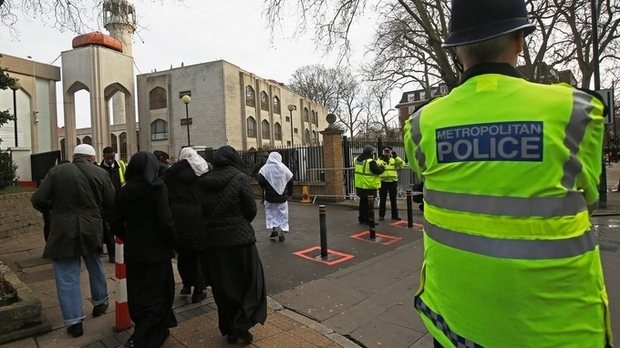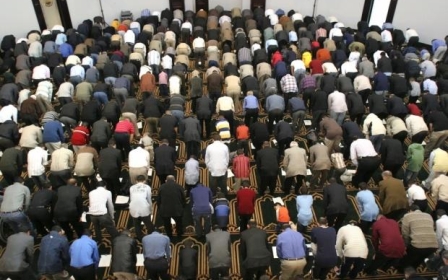Even its staunchest advocates can see that Prevent is a busted flush

In the decade since Prevent has existed as a key part of Britain's counter terrorism strategy, criticisms of the traumatic effect it has had on relations between the Muslim community and the state have only grown. From local organisations to the United Nations, the mistrust and suspicion caused by Prevent have been widely reported.
The problems with Prevent don’t lie with public perception or resources - they lie within the strategy and the implementation
Attempting to respond to the threat of radicalisation in the UK, Prevent is one strand of Contest, designed to challenge terrorist ideology and narrative, and work with sectors where there are risks of radicalisation to stop people from supporting terrorism. The most recent iteration, jointly updated by the last government, is the working document upon which the legal duty on public bodies is based.
Since the Counter Terrorism and Security Act was fast-tracked through parliament in 2015, the duty currently means authorities have to have “due regard to the need to prevent people from being drawn into terrorism". As a result, universities, colleges, schools, hospitals, prisons and almost every other public facing service have had to demonstrate their commitment to the duty, with incredible public pressure on those seen to be flouting it.
While the theory underpinning Prevent has identified ideology as one driving force behind radicalisation, the notion that fitting the description of a “stereotypical Muslim" is enough reason to suspect someone is continuously popularised and legitimised.
A heavy focus on combatting non-violent extremism with an unhelpfully vague definition of how that actually manifests, has meant people are being superficially trained to subjectively spot signs of radicalisation.
There are no assurances given to stop this playing into existing and quite prolific biases and prejudices - any government policy should at the very minimum be aiming to dispel prejudice, but Prevent encourages it. This would be worrying even if we weren't currently witnessing the unprecedented normalisation of Islamophobia across Europe.
Scrap the strategy
The Quilliam Foundation has long supported the UK government’s counter-extremism strategy, with founder Maajid Nawaz even taking credit for shaping previous prime minister David Cameron’s approach. However, now that the strategy has attracted substantial criticism, the Labour Party and Liberal Democrats have both called for it to be scrapped completely.
Those who have long supported Prevent must accept the mistake in its creation, and protect the principles of democracy and equality. This isn’t a minority view - an independent review into Prevent has been called by David Anderson QC, the independent reviewer of terrorism legislation. Communities around the UK have informally taken the decision to boycott Prevent.
Maajid Nawaz has never been able to set out the academic evidence behind Prevent or any solid metrics to show its success
Andy Burnham MP, the former shadow home secretary, has called Prevent the equivalent of internment in Northern Ireland, urging a cross-party review. Burnham said in his view the strategy should be scrapped, an opinion shared by the National Union of Students which has long boycotted Prevent.
Recently, the National Union of Teachers passed a policy calling for the withdrawal of Prevent from schools. UCU, the lecturers union, also voted to boycott Prevent, believing that it is a fundamental attack on freedom of speech and academic freedom, and greatly compromises the role of lecturers.
Maina Kiai, the UN’s special rapporteur on the right to freedom of assembly visited the UK, expressed unease about the possibility of Prevent promoting extremism through dividing and alienating segments of the population, rather than countering it.
Sudden U-turn
The problems with Prevent don’t lie with public perception or resources - they lie within the strategy and the implementation. In 11 years, successive governments weren’t able to convince the public that this strategy works, indeed one poll said 96 percent of the British public believe it is not working, yet historically Quilliam’s support never wavered.
This makes all the more intriguing a recent article in the Times of Israel by Quilliam’s chairman Maajid Nawaz, in which he suddenly appears to advocate reform of Prevent. He has also gone on radio calling the new policy adopted by the Liberal Democrats - his own political party - “a more sensible approach”.
Nawaz continues to attack Prevent’s opponents even when finally accepting they were right all along
This would be welcome news, were it not that the policy is the complete opposite of what Nawaz has long advocated.
Indeed, Quilliam has long belittled legitimate grievances with the Prevent strategy, whereas the recent policy change demonstrates that the Liberal Democrats have taken seriously and addressed each criticism of Prevent, calling “to scrap Prevent in its entirety” and highlighting the need for any strategy to be based on evidence, transparency and engagement.
Beginning of the end?
Observers may note the confusion of Quilliam staunchly supporting Prevent and simultaneously welcoming a policy which criticises every aspect of it.
One explanation offered is that it is perhaps now repositioning itself as an advocate of reform because their previous position is untenable. So what was the tipping point?
Nawaz’s new position comes after his own party, at its annual autumn conference, voted to adopt a new stance on Prevent. Has this move left Nawaz feeling humiliated and isolated? Is his response a thinly veiled attempt to stay with the tide of public and expert opinion, which is increasingly against Prevent?
One could argue that this has been a fruitless end to years spent demonising and smearing the people and organisations that have tirelessly campaigned against the counter-productive Prevent strategy, but something tells me this isn’t the end.
Nawaz continues to attack Prevent’s opponents even when finally accepting they were right all along. Descriptions such as “dogmatic Islamists and far-left agitators” and “the preventing Prevent lobby” are still being thrown at us. Supposedly this now includes his own political party too.
No matter how hard they may now try to reposition themselves, Quilliam’s staunch support of Prevent and how much they smear its opponents are well-documented and will remain so.
Maajid Nawaz has never been able to set out the academic evidence behind Prevent or any solid metrics to show its success. He has allied himself with Islamophobic and neocon networks, and has been accused by his own family of making up his life story.
The shifting sands at Quilliam are perhaps a sign that Nawaz can see Prevent’s tower of blocks finally swaying.
- Samayya Afzal is a graduate in Biomedical Science from the University of Bradford, and twice elected Women's & Campaigns officer at the University of Bradford Union of Students. She has been an elected representative on the NUS National Executive Council for two years, volunteering under the remit of Society & Citizenship. She is also the co-founder of the national campaign Students Not Suspects, formed in opposition to the measures placed on universities under the Prevent duty.
The views expressed in this article belong to the author and do not necessarily reflect the editorial policy of Middle East Eye.
Photo: Police carry out a regular patrol as worshippers arrive at the London Central Mosque at Regent's Park in London on 9 January 2015 (AFP)
New MEE newsletter: Jerusalem Dispatch
Sign up to get the latest insights and analysis on Israel-Palestine, alongside Turkey Unpacked and other MEE newsletters
Middle East Eye delivers independent and unrivalled coverage and analysis of the Middle East, North Africa and beyond. To learn more about republishing this content and the associated fees, please fill out this form. More about MEE can be found here.





